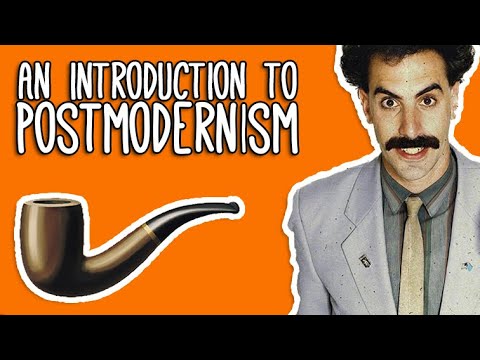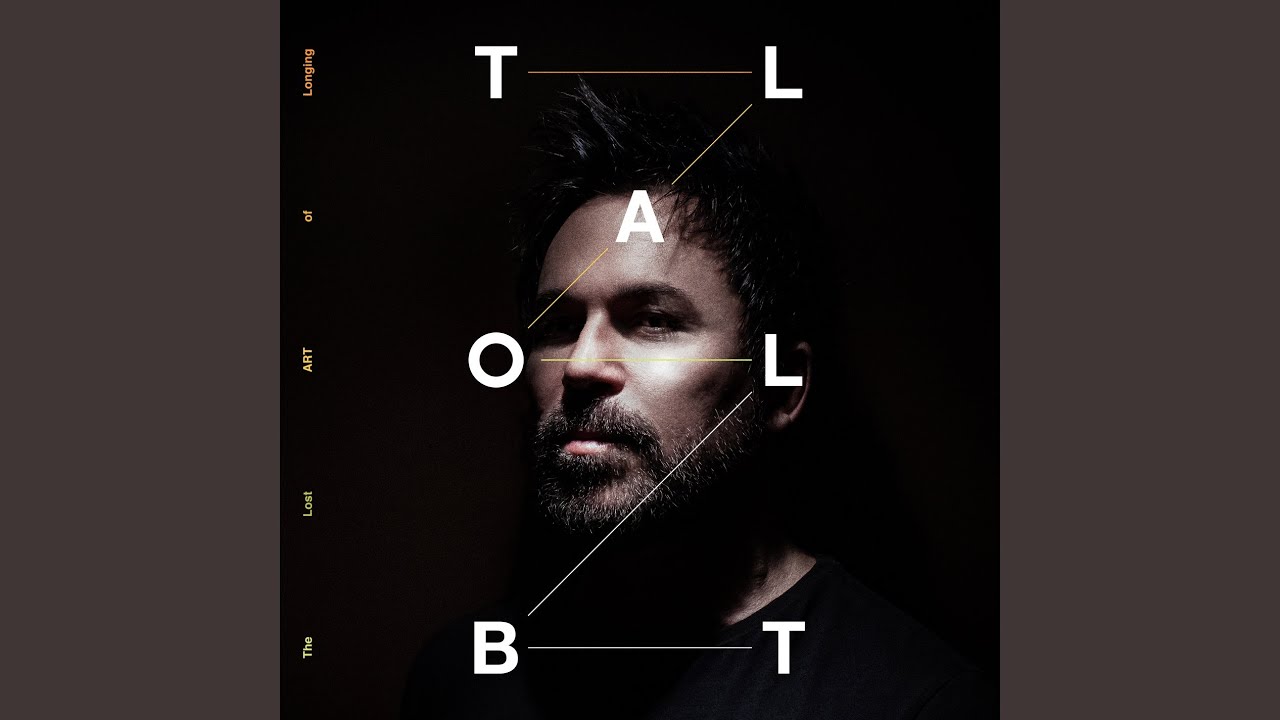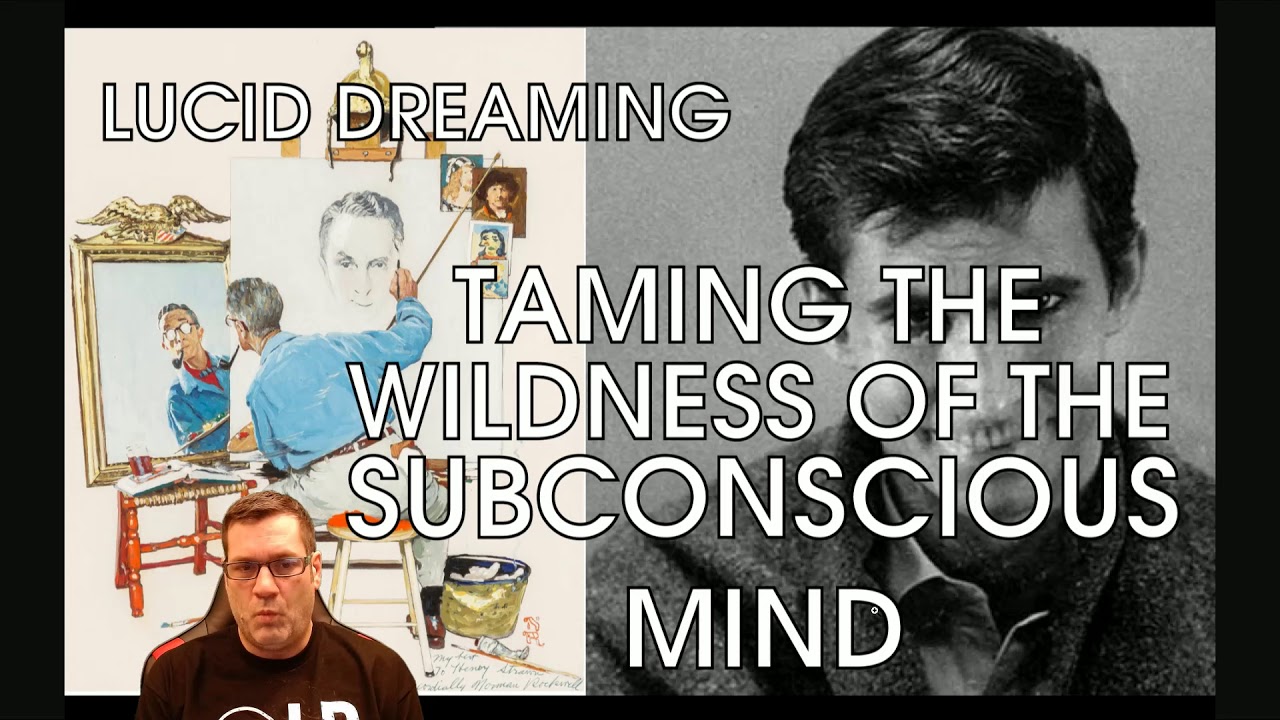Tom Nicholas
What is postmodernism? This is certainly my most requested What the Theory? video yet. In it, I hope to provide an introduction to postmodernist theory and postmodernist philosophy. Along the way, we’ll look at simulacra and Baudrillard’s concepts of a simulacrum and hyperreality as well as Wittengenstein’s concept of language-games.
There are few places online where you can find postmodernism explained simply and clearly. It’s a complex theory (as perhaps is made obvious by the length of this video) but, ss always with What the Theory? I hope its the start of such a resource, particularly with so many misconceptions of postmodernism running about online of late.
Further Reading
Postmodernism, or, the Cultural Logic of Late-Capitalism by Fredric Jameson
US: https://amzn.to/2UaEA46
UK: https://amzn.to/2TdVwul
Postmodernism: A Very Short Introduction by Christopher Butler
US: https://amzn.to/2Hb4q4w
UK: https://amzn.to/2SzzPj6
[The above are affiliate links. I receive a small kickback from anything you buy which, in turn, helps to support the channel.]
Furthermore, while I find the Stanford Encylopedia of Philosophy entry for postmodernism to be far less helpfull than other (usually its pretty ace), here’s the link to that if you want to check it out: https://plato.stanford.edu/entries/postmodernism/
If you’ve enjoyed this video and would like to see more including my What The Theory? series in which I provide some snappy introductions to key theories in the humanities as well as PhD vlogs in which I talk about some of the challenges of being a PhD student then do consider subscribing.
Thanks for watching!
Twitter: @Tom_Nicholas
Website: www.tomnicholas.com
Source




Hi all! First off, thanks for watching, I hope you found the video engaging and informative in some way in spite of the atrocious sound etc! If you'd like to support me to make more videos like this (but better!) then I've just launched a Patreon. I'd really appreciate you checking it out and would be very grateful for your support! You can check it out here: https://www.patreon.com/tomnicholas
Hi Tom! Thanks a lot for the video. I just wanted to note that Lyotard introduced the term to the philosophical realm while it already existed in other spheres. Brian McHale, in his book The Cambridge Introduction to Postmodernism, states that already in 1973, postmodernism 'acquired its name.' McHale also notes that some literary scholars started to use this term in 1970 (he brings an example of Leslie Fiedler). So Lyotard didn't invent it, but without a doubt, he contributed a lot into the development of theory around postmodernism 🙂
We may have became skeptical of the meta-narrative, but did not lose faith in us and insist on manifest.
That is a very nice shirt
So Post-Modernism deviates from Modernism in that the idea of an attainable (objectively) ideal society based on objective truths is actually false, and instead every seemingly truthful idea is actually a masqurade of some arbitrary relative idea, creating an irreconcilable divergence between what is supposedly honest and real and what it is in reality?
Nice
Tom called Trump a millionaire. 😂
I highly suggest you go and read “New Evidence That Demands a Verdict” by Josh McDowell! He has a whole section on postmodernism and many other lines of logic and reasoning among the mindsets of people today. Hope it helps to give you a source for study on this topic!
Hi Tom. Great video. Do you have anything on postmodernism and the future of education? or educational futures?
There are a lot of rational and well-meaning people that oppose Roe V. Wade. That seemed like a pretty random way to alienate viewers.
Cmon man you didnt talk about post modern neo marxists 🙁
How do you define "hyperreal"?
please answer this:
To what extent to you agree or disagree with concepts of Postmodernism shared in the video? Back up your answer with example drawn in the video.
Hi Tom! I just wanted to say I've really enjoyed a heap of your videos and have found them super helpful in getting my head around post-structuralism and post-modernism. Thanks!
I would say that although there are theories on what postmodernism is, Postmodernism is not a theory itself. Nobody is saying, "how about we all go like this!" It cannot be argued against. It is just a way of describing cultural aspects of late capitalism. And, as you say Tom, it is largely defined by incredulity to meta-narratives. The term postmodern is ostensibly oxymoronic as 'Modern' to many means the latest, so by its defnition it parenthesises Modernism and at the same time suggests a kind of 'post-history' (eg Fukyama), History being one of the greatest meta narratives of all. In that respect it is more than post Modernism because these meta narratives exist before modernism, 'Human Nature' for example. The terms 'post-history' and 'post-modern' stick because of the apparent paradoxical nature of them as they represent these anxieties created by late capitalism – illustrated by reference to simulacram. In Marxist terms Alienation. There is a lack of (perceived) meaning in human lives, which have changed tremendously in a very short space of time from industrialisation through post industrialisation, and it is possible we don't have the (cultural) tools to cope with it eg we no longer rely on the wisdom of our elders because of technological and cultural change.
All of this can possibly be framed by the idea of postmodernism. Truths are no longer true. For those who say 'postmodernism did this to me' are barking into the wind because it is late capitalism which has dismantled perceived truths. It is just a way of describing this very anxiety that has come about because if it.
Pretty sure post modernism is defined by not being able to define post modernism… or at leas thats what I've come up with during my search for meaning of this phase.
Surely we've reached the era of post-postmodernism?
Abortion is “broadly positive for the world”? Have you considered the state of the family since 1968? Especially, minority families?
Abortion came from and remains a part of the eugenics movement. There’s a reason that 39% of aborted babies are black and 75% of abortion clinics are in “urban” neighborhoods.
But, please, do tell us more about the positives of abortion.
wow
Really great video. Thanks this is helping me with my Dissertation thank you
Taking post-structualism as an starting point. If a system of language has varying meaning depending on perspective/frame of reference; as a means to generalise and highlight how structuralism's assumptions limited the functionality of language. Isn't this also a metanarrative? As it places itself higher than other/previous attempts. If you make a critical response to this, say metastructualism, is that not itself going to be a metanarrative. From what I gathered it seems these are indefinitely inescapable. But is that a bad thing intrinsically? Or just a consequence from our human limitations to explain anything infallibly? Disclaimer, I am in no way studying these things it's more of a recent curiosity of mine.
Good intro. A question worth asking is whether Derrida´s conclusions are objective comment upon an object of interest to him (does he ever define it?) language, and its particular manifestations? is what he says about "binarism" true, or, false regardless of who does a deconstructuve analysis? will I arrive at the same conclusions about the ideological character of Aparthaid as someone else that may also do the same deconstrutive analysis of aparthaid? You can deconstruct any, and all texts: that is quite a universal application. So, there is something about his object of study that is truthful, and universal. Something that he was able to isolate about it that anyone else that may inspect it may also be able to detect.
The issue of "undecidability" is from Godel which is interesting. Derrida´s dialectics are not so discombolulating if you read an intro to formal, dialectical logic, Russell, and Godel. They are not bad. But he and Barth decontextualize too much. As if correcting what you are saying, checking in order to see if what you meant was conveyed does not lead to a bit of an improvement. Authors check, and do drafts, and edit the book etc. So, yes behind every book there is a will to convey meaning, and they work hard at it. I do not see how doing away with the process of writting a book would help. Anyways, some thoughts.
Tom wondering Can you do a video on pop art?
ur head is big thats why u understand all this nonesensical bullshit
Excellent video, I’m a bit let down by the lack of post-modern literary fiction. Still, great overview ~ I dare you to make a video on post-postmodernism!! Sub’d when I saw your modernism video pop up 👍🏻
Hi, Tom! I hope you’ll notice my comment. I’m studying West Side Story for my master’s degree. My question is: Is West Side Story a postmodern or modern musical? Hope you can help me. Thanks in advance.
The meta-narrative is the water a fish is swimming in and postmodernism is the hand that picks the fish out from the water, just temporarily, to let the fish know what it was swimming in all along. Postmodernism has no meta-narrative. It's response to the question, "What exists and what is valuable. And based on that what the ideal state of a human being or society of such?", is either silence or, "A Man Called Tom
, A Limerick by Kaleb. There once was a man who opined. He thought he was awfully fined. He tried not to laugh, At his terrible gaff, He couldn't say no to the unsigned."
So is it fair to say Postmodernity fails to disprove parody or rather simply ask if the parody is no less real than the subject of parody?
Very Interesting.
You are an excellent example of syntheses and clarity. You should do a video on Jameson's critique of Postmodernism and another on Cognitive Mapping.
Your characterisation of fascism in 5:05 is crass: 'a better world in their conception…would come from murdering those who they deemed inferior'. Pardon me? At most, they would have aimed at ruling over rather than at murdering. Furthermore, as far as ruling over is concerened, it was nothing peculiar to fascism. Do you know which country was 'ruling over ' the most in those days?
Ok but when will I be able to share in the little esoteric philosophical jokes about modernism and postmodernism? At this rate, never.
Excellent very very open minded. Original content
Thank you for posting this! Please send these references to Jordan Peterson 😂 he’s imagining caricatures of protomarxists and lunatics it’s appalling
An great, introductory presentation, thank you very much
Brilliant Tom.
I love how eloquently you dismiss the populist conception of the post modern etc. Makes me chcuckle everytime. Thank you for sharing valid knowledge with us Tom
hi, i watched a video from you in my seminar for sociology which was very helpful it was saying that basically that although casino owners have money and would be upper class they are not good people, or priests for example are poor but have a high social rating, can you help at all please? thank you
I don't know. Is it like when someone reads a summary of a movie and then watches it and it's marginally different?
The only test of a Postmodernist theory is that other Postmodernists like it,
Sooo. Anything that has a label isnt actually that thing it's labeled as and that all things are arbitrary? A pipe even though it is a man made construct was based off the idea of how water flows through mountains and across lands is actually abstract and inherently cant have a label and an idea attached to it even though we know how it functions and why it exists?
Further more on this idea of the idea of things. Jung proposed that Ideas and Thoughts do come from somewhere like a well of collective universal consciousness where all the ideas of humanity come from. Such as Planes. It's not an original idea and we only have half assed representations of the perfect plane. The perfect plane being a set of predetermined values that already exist but we've yet to figure it out. It was a thing well before we labeled it and gave it a description. How does post modernism fit into this? Or is this exactly post modernism? The idea of the perfect plane is there, but all we can do is strive to get there without actually ever getting there?
And is it really just The Quantum Mechanics of how we perceive the world we made and is only limited to it? Is this similar to the sciences that we perceive on the macro that also has a whole set of other rules under the hood when you get into the Micro and in this case. Isn't this just Scientism or is this an perspective in which you can't be wrong and any observations are 2×2=4 because it's all essentially arbitrary like the dollar in your pocket?
Or is this a way saying that 1 can = P and 2 can = C and 3 can = T and so on? And that what we consider one thing today is subject to change in the future?
Enjoy the videos, they are helpful supplements to the articles for my anthropology theory class. This video, however, I think focused too long on modernism when contrasting to postmodernism. I lost focus at times and caused some confusion as to which was being discussed but that just may be me still learning to wrap my brain around these ideas.
A helpful dissection of postmodernism to be sure, but your definition of fascism is rather a little bit extremely shallow.
How are you a phD student???! You are a fetus!, I feel like such an underachiever rn, lol
16:30 There is a deep sexual meaning behind this, because in french; a pipe is a very common word for a blowjob.
4:54 You are wrong about fascism. This is national socialism, but later Italy adopted racial theories from its powerful German ally. But even many people in the party didn't agree because they were seen as inferior to the nordicist ideal.
You, sir, are cool. 🙂
Hi Tom, love your vlog! Do you have any videos on research methodology that relates to the arts? i'm 6months into my Phd and really stuck on my methodological approach, are there any good books that break down the technical jargon into something that a practitioner may be able to get?
What can you say about metamodernism?
I love your accent , so British saluts From Algeria 💜
Feminism = Meta-Narrative?